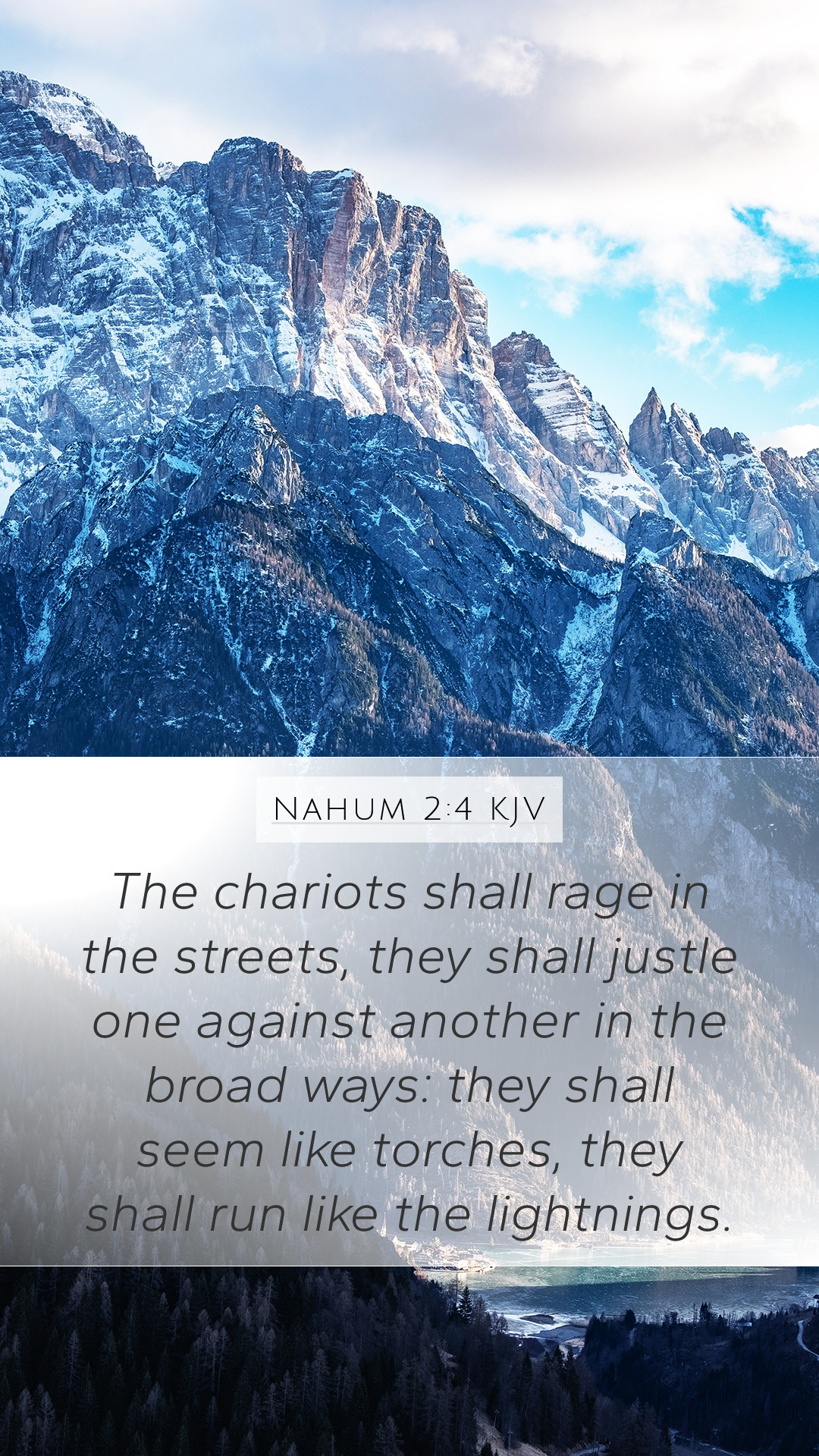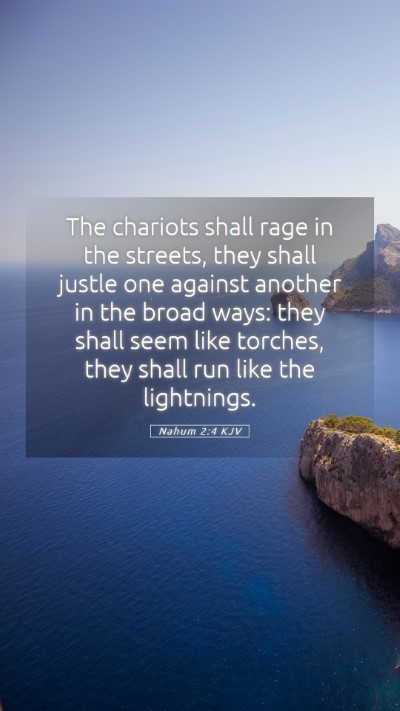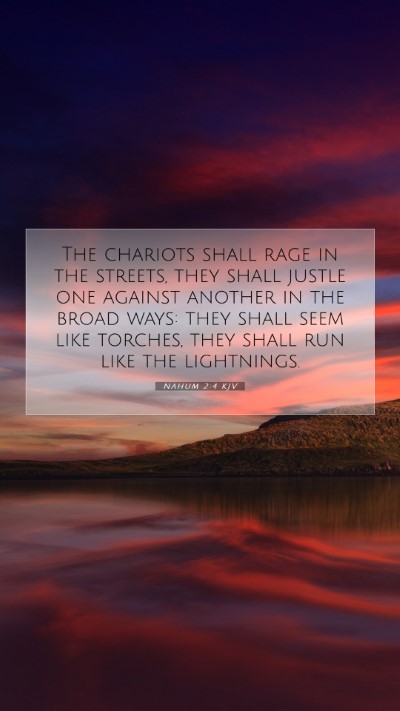Old Testament
Genesis Exodus Leviticus Numbers Deuteronomy Joshua Judges Ruth 1 Samuel 2 Samuel 1 Kings 2 Kings 1 Chronicles 2 Chronicles Ezra Nehemiah Esther Job Psalms Proverbs Ecclesiastes Song of Solomon Isaiah Jeremiah Lamentations Ezekiel Daniel Hosea Joel Amos Obadiah Jonah Micah Nahum Habakkuk Zephaniah Haggai Zechariah MalachiNahum 2:4 Meaning
What is the meaning of Nahum 2:4?
The chariots shall rage in the streets, they shall justle one against another in the broad ways: they shall seem like torches, they shall run like the lightnings.
Nahum 2:4 Bible Verse Meaning
Nahum 2:4 - Bible Verse Meanings and Interpretations
Nahum 2:4 states, "The chariots shall rage in the streets, they shall justle one against another in the broad ways: they shall seem like torches, they shall run like the lightning." This vivid imagery captures the intensity and chaos of battle, signifying the judgment against Nineveh.
Summary of Insights from Public Domain Commentaries
Combining insights from the works of Matthew Henry, Albert Barnes, and Adam Clarke, we can derive a deeper understanding of this verse:
-
Matthew Henry's Commentary:
Henry emphasizes the ferocity of the Assyrian military as they face God’s judgment. The imagery of chariots signifies the speed and destruction that will occur in the streets of Nineveh, symbolizing not only the literal conflict but also the spiritual implications of God’s wrath.
-
Albert Barnes' Notes:
Barnes highlights that the tumult and uproar in the city represent the total dismay of the Assyrians as they confront their enemies. The broken state of their society under siege is akin to a calamity foretold by prophets, reflecting God’s sovereignty in the impending judgment.
-
Adam Clarke’s Commentary:
Clarke draws attention to the symbolic nature of the chariots and their movement. He suggests that the "torches" and "lightning" represent not only the swiftness of the Assyrian forces but also the swift execution of divine judgment, emphasizing the inevitability of God’s plan against sinfulness.
Understanding the Context of Nahum 2:4
This verse falls within the prophetic book of Nahum, which deals specifically with the prophecy against Nineveh, the capital of Assyria. The Assyrians were known for their brutality and oppression of Israel, and Nahum's prophecy foretells the city's downfall as a divine judgment.
Key Themes in Nahum 2:4
- Divine Judgment: This verse is a testament to God's judgment upon nations that oppose His will.
- Chaos of Warfare: The imagery used portrays the chaos and disorder that ensue during times of conflict.
- God's Sovereignty: The prophecy illustrates God's control over historical events and His ability to fulfill His promises of judgment.
Application of Nahum 2:4
For modern readers, Nahum 2:4 can serve as a reminder of the consequences of injustice and the righteousness of God's judgment. It challenges readers to reflect upon their own actions and the state of the world, urging them to seek justice and righteousness in their lives.
Cross References
- Zephaniah 3:15: Speaks to the Lord taking away judgments against His people.
- Isaiah 10:5: Discusses God's use of Assyria as an instrument of judgment.
- Habakkuk 1:6: God mentions raising up the Chaldeans as a judgment against Israel.
Conclusion
Nahum 2:4 provides rich insights through its compelling imagery and message of God's judgment. By studying this verse and its context, readers can glean valuable lessons about justice, accountability, and the sovereignty of God over the nations. This serves as an invaluable resource for anyone involved in Bible study groups, seeking online Bible study resources, or engaging in in-depth Bible verse analysis.


